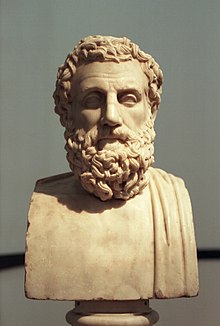Dostoevsky and Classical Tragedy

Fyodor Dostoevsky had a comprehensive literary education as a child, one in which he was exposed to not only contemporary works, but also to historical, seminal pieces of literature. As such, works of the classical Greek canon were incorporated into his education, meaning he was exposed to the epic poetry of Homer and Hesiod and the dramas of the preeminent Athenian tragedians, Aeschylus, Sophocles, and Euripides (Egeberg 183). While Dostoevsky does not make as many overt references to Antiquity as he does to the Christian tradition, elements of classical tragedy do emerge in his works, particularly in Crime & Punishment.
Vyacheslav Ivanov, in his book Freedom and the Tragic Life: a Study in Dostoevsky, lays out much of the groundwork for a comparison between the Russian author and the tragedians, particularly Aeschylus. Ivanov asserts that Dostoevsky’s novels are each patterned after the classical tragic structure, comprised of a prologue, a parados, episodes, stasima, and an exodos (174). Though the rules around each of these segments are quite strict (Aristotle 55), and Dostoevsky does stray from them (he has no chorus, violence is depicted rather than described, etc.), the connections are still clear. Ivanov also sees this structure bringing about a catharsis in Dostoevsky’s audience (Iswolski 138), as is the purpose of classical tragedy (Aristotle 71). With regards to Aeschylus, considered the most emblematic of Greek tragedians, Ivanov believes he and Dostoevsky share a key theme of communality over individuality. Aeschylus’ Orestes, hero of the Eumenides, and Dostoevsky’s Raskolnikov, protagonist of Crime & Punishment, can be seen as mirroring each other in their descents into isolated madness before emerging to embrace humanity again by admitting their crimes and facing trial (Kliger 75).
Some, notably Lev Pumpyansky, have debated these sort of comparisons. Pumpyansky, in his Dostoevsky and Antiquity, compares Dostoevsky’s themes to those of Euripides rather than Aeschylus (Kliger 78). Such a comparison, as Pumpyansky explains, is moreso related to Euripides’ reputation as a deviant from the traditional tragic form. Pumpyanksy believes the character of Raskolnikov specifically to be more related to Shakespeare’s Hamlet character (from the eponymous play), for his inability to act when faced with the prospect of revenge (Kliger 77).
While commenting on the debate between Ivanov and Pumpyansky, Ilya Kliger identifies a variety of tragic motifs which Dostoevsky seems to objectively utilize in some of his works: “spilled blood and trial, suffering and redemption, sacrifice and recompense” (78). Though these themes appear in a number of Dostoevsky’s pieces, Crime and Punishment best exemplifies these tropes. Its plot is book-ended by the themes of bloodshed and a trial, and the other concepts can be neatly tied to a number of characters in the work, including Raskolnikov, Sonya, and Svidrigailov. Another trope is that explored by Friedrich Nietzsche, the dichotomy of the Apollonian versus the Dionysian, representing rationality and irrationality respectively. Nietzsche believes that a conflict between the two was a key component of classical tragedy (33). Erik Egeberg, among others, has seen this dichotomy emerge in Dostoevsky’s corpus, such as in the differences between the characters of Nastasya Filippovna and Aglaia Ivanovna in The Idiot (184).
Works Cited
Aristotle. Poetics. Translated by Kenneth McLeish, Dramatic Contexts, 1999.
Egeberg, Erik. "Dostoevsky's Novels as Classical Tragedies". Nordlit vol. 33, no. 1, 2014, pp. 183-188.
Ivanov, Vyacheslav. Freedom and the Tragic Life: a Study in Dostoevsky. Translated by Norman Cameron, Harvill Press, 1952.
Iswolski, Helene. Review of Freedom and the Tragic Life: a Study in Dostoevsky by Vyacheslav Ivanov. Thought, vol. 28, no. 1, 1953, pp. 137-138.
Kliger, Ilya. "Dostoevsky and the Novel-Tragedy: Genre and Modernity in Ivanov, Pumpyansky, and Bakhtin". Modern Language Association, vol. 126, no. 1, 2011, pp. 73-87.
Nietzsche, Friedrich. The Birth of Tragedy. Translated by Douglas Smith, Oxford World Classics, 2000.
Further Reading
Cox, Roger L. Between Earth and Heaven: Shakespeare, Dostoevsky, and the Meaning of Christian Tragedy. Holt, Rinehart, and Winston, 1969.
Hamburger, Kate. From Sophocles to Sartre; Figures from Greek Tragedy, Classical and Modern. F. Ungar Publishing Co., 1969.
Love, Jeff, and Jeffrey Metzger. Nietzsche and Dostoevsky: Philosophy, Morality, Tragedy. Northwestern University Press, 2016.